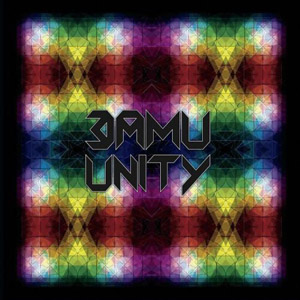Damu Unity
When describing the work of Damu, the “post-everything” tag is about as succinct as one […]

When describing the work of Damu, the “post-everything” tag is about as succinct as one could get, and on Unity, the Manchester producer seems ready to dip his hands in everything from sleek R&B to island pop, grime, and house in order to craft his brand of glistening bass music. The resulting 12 tracks present a debut LP that is all over the map, usually landing in favorable destinations, but every now and again losing the listener along the way .
If you don’t like cascading arpeggios and leading melodies made from chopped and pitched female vocals in your bass music, then this record isn’t for you. But if you do, there is no shortage of memorable, dancefloor-ready tracks of that exact nature to be found on Unity. In fact, it seems to be the realm where Damu sounds the most comfortable and excels the furthest, especially on the LP’s first three full cuts, “Breathless,” “L.O.V.E.,” and “After Indigo”—all of which utilize pop-like arrangements to move through deliberate melodic themes, warm chords, and vocal snippets that almost beg you to sing along. But Damu’s craftsmanship proves to not only be impressive in the higher-end of the frequency spectrum, as all the aforementioned tunes also exhibit just as much production skill in their respective low-end and rhythmic layers. This is perhaps best shown on Unity’s‘s closing pair of songs, “Ether” and “Don’t Cry In My Bed,” which again brandish a slew of glorious arpeggiated synth-lines and cut-up R&B accapellas, while also showing off some of Damu’s most infectious garage-indebted, revolving drum patterns along with generous helpings of rich, brooding bass.
The record is bookended by its best contributions, with the space in the middle left for Damu’s attempts to step just a bit outside his usual formula to explore darker soundscapes. The problem is that given the producer’s usual sonic palette—videogame-reminsicent bleeps and bloops, buzzing pads, and harmless drum-machine percussion—his reach into more sinister territory can be hard to take seriously, like on the meandering fuzz exploration “Maths Is Fine For Sum” or the unfortunately ambient (but brief) “Weapon #3.” However, there are moments where his sounds lend themselves surprisingly well to the more intense selections, as on “Ridin’ the Hype,” which overcomes a slightly pointless vocal contribution from grime MC Trim to stand as an impressive UK-style half-time banger, and “Plasm,” a slightly off-kilter house tune driven by deep, other-worldly percussion.
Despite its few missteps and, we must mention, the fact that the album comes dangerously close to arpeggio overload during its almost hour-long run time, Unity really is a solid debut LP, and one which seems able to extend its appeal from the clubs of the UK (where these tunes are undoubtedly oriented) to also having the ability to serve as just a collection of entertaining, well-crafted songs in their own right, something fit to be heard on iPods, car stereos, and the like. Sure, you may have to skip a track here or there, but it’s entirely worth the effort.

